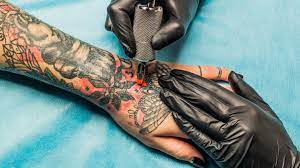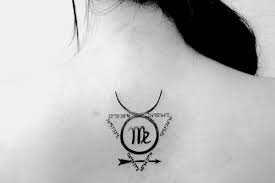
Numerous jobs do not object to visible tattoos. Companies without uniforms or dress codes tend to be more accepting of body art.
Surveyed 327 employers, only 14% said that someone with Tattoos would disqualify them as job candidates; for the rest, it depended on the location and content of the tattoos.
Job Prospects
Tattoos have become more widespread, leading employers to accept people with visible Tattoos for employment opportunities. However, many job seekers still worry that visible tattoos could inhibit their chances of being hired; they must understand how Tattoos might influence their job prospects before beginning the search for new opportunities.
Recent research demonstrated that individuals with tattoos are statistically indistinguishable from their counterparts without them in terms of pay and working hours, creating an enormous shift from prior assumptions that employers viewed employees with Tattoos as less desirable employees.
At the core, whether or not to hire someone with tattoos will come down to an employer’s culture and personal preferences. In general, non-vulgar Tattoos placed discreetly will likely be okay; it is, however, wise to research any company you apply to before going for an interview.
Job Performance
Tattoos have become more accepted throughout society and workplace environments alike. However, many companies still adhere to a no-tattoo policy and may find an employee sporting a large, visible tattoo that presents an unprofessional image for their company.
Employers should remember that size, placement, and subject matter all play an integral role in whether or not it fits within their business culture. As tattoos continue to gain acceptance, employers that impose no-tattoo policies risk alienating a large pool of potential employees. Hiring diverse personnel will enhance the effectiveness of any company; employers should create guidelines that differentiate between job categories.
For example, warehouse or stockroom workers might be allowed more tattoos than receptionists or salespersons; in this way, companies can make the best choice for their work environment.
Job Satisfaction
Recent research disproves the old assumption that tattoos will damage job prospects, with studies conducted at the University of Michigan showing that people with visible tattoos earn just as much as those without visible tattoos, with lower unemployment rates among those who sport visible tattoos than without.
Some employers still frown upon tattoos, while others are becoming more accepting. Lush is one company that employs staff with tattoos and multiple facial piercings – to be on the safe side. However, it would be prudent to consult an organization’s dress code policy before attending an interview.
One way of ascertaining whether a company allows visible tattoos is to ask the department supervisor that you plan to join. For instance, sales team leaders might be more accepting of tattoos than medical or law firm directors.
Job Discrimination
Although tattoos have become more accepted in the workplace, employers still retain the right to create legal dress codes that require employees to cover or remove specific adornments. This is particularly applicable in prominent industries like retail and transportation, where management may worry about how tattoos or piercings might make customers perceive them.
Healthcare institutions may be wary of hiring nursing staff with visible tattoos that might compromise patient confidentiality. Yet, certain companies like Lush and Google are known for having policies supportive of them.
However, even in such circumstances, a potential employee can be denied employment due to body art such as tattoos or piercings. While any employer disapproval of body art is protected under UK Equality Act laws, it is unlikely to result in damages claims or changes to company policy.

